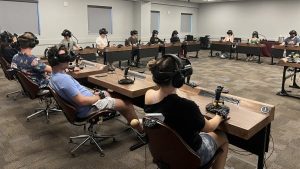As we continue to advance in technology, it is becoming more evident that artificial intelligence (AI) will have a significant impact on our workforce in the near future. This includes higher education, where AI is beginning to disrupt traditional teaching and learning methods.
In order to prepare for the influx of AI in the workforce, higher education institutions must start strategizing and implementing new initiatives to effectively integrate this technology into their curriculum. One of the key areas that will be affected by AI in higher education is the way courses are taught. With the use of AI-powered tools, professors can provide personalized learning experiences for students, offering tailored feedback and resources based on their individual needs and learning styles.
Additionally, AI can also help streamline administrative tasks within institutions, such as admissions processes and academic advising. By automating these tasks, higher education staff can focus on more important aspects of their roles, such as fostering student success and engagement.
Furthermore, the rise of AI in the workforce will require educational institutions to equip students with the necessary skills to thrive in this new environment. This includes teaching critical thinking, problem-solving, and collaboration skills, as these are areas where humans outperform machines. Additionally, students will need to be trained in AI technologies and tools, as these will be increasingly vital in various professional fields.
To effectively prepare for the new AI workforce in higher education, institutions must also prioritize diversity and inclusion in their AI initiatives. It is crucial that AI technology is developed and implemented in a way that is fair and unbiased, as the consequences of biased algorithms can be far-reaching.
In conclusion, the rise of AI in the workforce is inevitable, and higher education institutions must start preparing for this new reality. By leveraging AI technology effectively, institutions can enhance the learning experience for students, streamline administrative processes, and equip students with the skills needed to succeed in the future workforce. By prioritizing diversity and inclusion in AI initiatives, we can ensure that the future workforce is fair and equitable for all.


